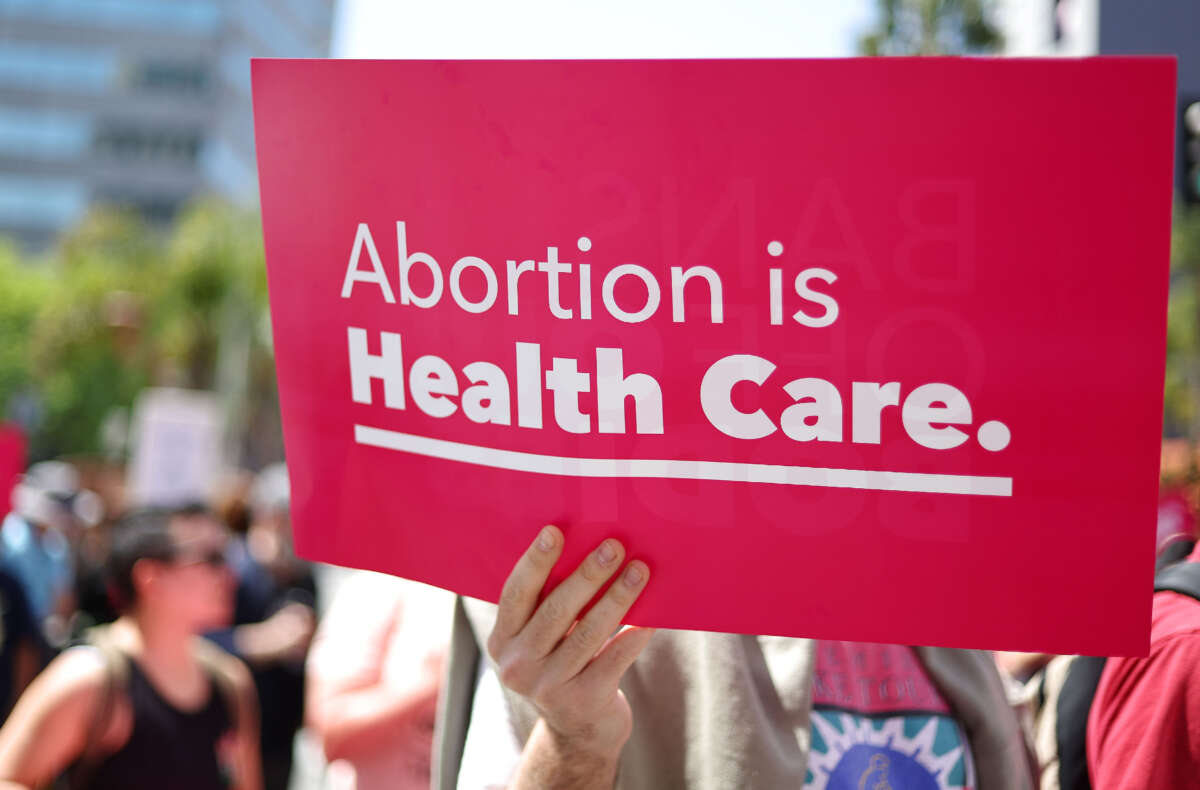Truthout is an indispensable resource for activists, movement leaders and workers everywhere. Please make this work possible with a quick donation.
A panel of judges on the U.S. Fifth Circuit Court of Appeals issued a ruling on Tuesday that would, if allowed to stand, effectively end federal guidance of a rule requiring hospitals to provide emergency abortions to people whose pregnancies are threatening their lives.
Following the 2022 Dobbs v. Women’s Health ruling by the U.S. Supreme Court, which overturned nearly half a century of federal abortion protections established by Roe v. Wade, the Biden administration took several steps to ensure that some forms of abortion care remained protected under federal law.
These measures included the expansion of federal guidance on a law passed in 1986 called the Emergency Medical Treatment and Labor Act (EMTALA), which requires hospitals that receive federal funding to provide emergency services to all patients who show up at their doors. The Biden administration specifically stated that EMTALA applies to abortion services, requiring hospitals to perform the procedure in emergencies if it is required to save a person’s life, even in states where abortion is outlawed or severely restricted.
When a state law prohibits abortion and does not include an exception for the life of the pregnant person — or draws the exception more narrowly than EMTALA’s emergency medical condition definition — that state law is preempted.
In August of 2022, just a month after that guidance was established, Texas Attorney General Ken Paxton (R) sued the administration, arguing that the new guidance was an overreach that wrongly superseded state law. A federal judge soon placed an injunction on the new rule, siding with Paxton’s claims, which led the Biden administration to appeal to the Fifth Circuit Court of Appeals.
That circuit is widely recognized as the most conservative in the U.S. It was unsurprising, then, that all three judges on the panel sided with Texas’s arguments, ruling on Tuesday that the federal expansion of EMTALA was illegal.
All three judges — Leslie Southwick, who was nominated by former President George W. Bush, and Cory Wilson and Kurt Engelhardt, who were nominated by former President Donald Trump — have been recognized by the Leadership Conference on Civil and Human Rights, a coalition of 230 groups across the U.S. that aim to “promote and protect the civil and human rights of all persons in the United States,” as alarming appointees to the federal judgeships. The organization specifically cited Wilson and Engelhardt’s anti-abortion views as being deeply troubling.
Wilson, for example, expressed support for laws requiring people seeking abortions to “receive a lecture” that would include unfounded claims that fetuses feel pain at certain weeks of gestation, and as a Mississippi state legislator sought to pass several anti-abortion laws that would undermine protections that had been guaranteed under Roe. Engelhardt, meanwhile, was a member of an anti-abortion group called Louisiana Lawyers for Life, which the Leadership Conference on Civil and Human Rights described as an “extreme organization.”
Engelhardt delivered the opinion of the court, brazenly claiming that federal law regulating how federally-funded hospitals must manage themselves was unconstitutional.
“EMTALA does not govern the practice of medicine. … While EMTALA directs physicians to stabilize patients once an emergency medical condition has been diagnosed, the practice of medicine is to be governed by the states,” Engelhardt demanded.
It’s unclear whether the ruling will be appealed. However, similar cases elsewhere in the U.S. likely mean the issue will come before the U.S. Supreme Court sometime in the future.
Critics condemned the Fifth Circuit court’s ruling on social media.
“It defies regular logic, let alone legal reasoning, to declare that EMTALA does not regulate medicine,” Nicole Huberfeld, professor of health, law, ethics and human rights at Boston University, said on X. “That is literally what EMTALA does: tell hospitals they must screen for emergency medical conditions, then treat the condition or stabilize and transfer the patient if a different hospital is a better option.”
“If EMTALA protections do not apply to *some* life-threatening emergencies — and *some* patients — then this will have disastrous consequences for healthcare in this country,” opined Ryan Marino, emergency physician and addiction medicine specialist at Case Western Reserve University.
Other legal experts noted that the challenge to EMTALA by anti-abortion activists was aided by the fact that it occurred within the Fifth District Court of Appeals.
“The analytical leap from ‘EMTALA doesn’t require specific medical procedures’ to ‘EMTALA doesn’t preempt state laws that *ban* procedures doctors *want* and *need* to perform to stabilize emergency patients’ is only possible in the Fifth Circuit,” said Steve Vladeck, a law professor at the University of Texas.
A terrifying moment. We appeal for your support.
In the last weeks, we have witnessed an authoritarian assault on communities in Minnesota and across the nation.
The need for truthful, grassroots reporting is urgent at this cataclysmic historical moment. Yet, Trump-aligned billionaires and other allies have taken over many legacy media outlets — the culmination of a decades-long campaign to place control of the narrative into the hands of the political right.
We refuse to let Trump’s blatant propaganda machine go unchecked. Untethered to corporate ownership or advertisers, Truthout remains fearless in our reporting and our determination to use journalism as a tool for justice.
But we need your help just to fund our basic expenses. Over 80 percent of Truthout’s funding comes from small individual donations from our community of readers, and over a third of our total budget is supported by recurring monthly donors.
Truthout has launched a fundraiser to add 379 new monthly donors in the next 6 days. Whether you can make a small monthly donation or a larger one-time gift, Truthout only works with your support.
